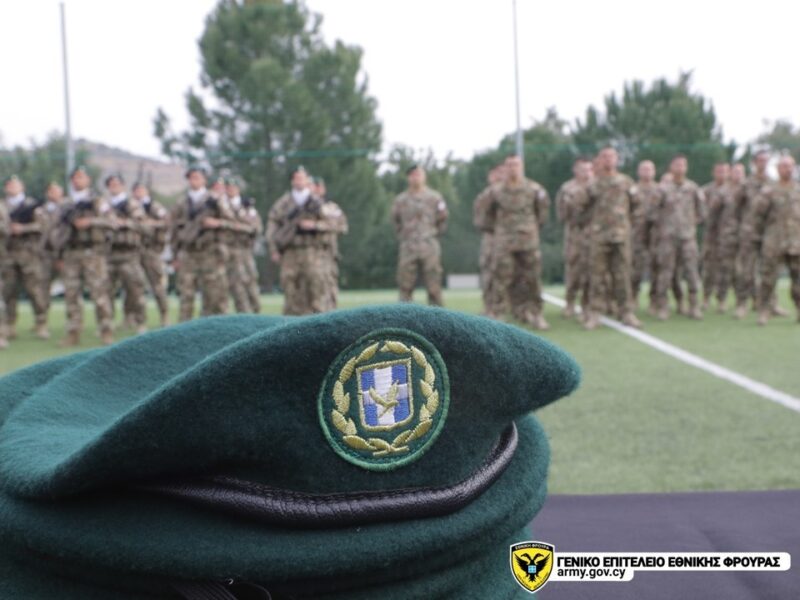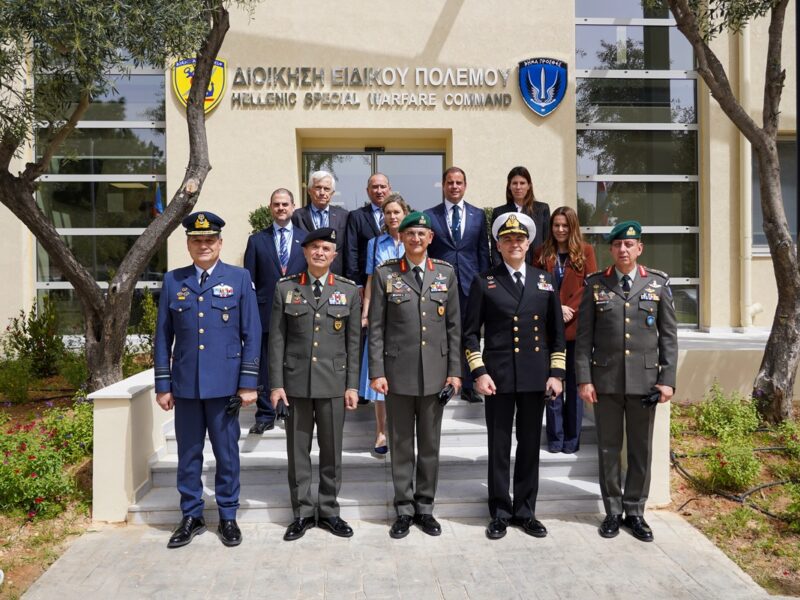It is not only the program for the supply of Spike NLOS Multi-Role Anti-Tank Missile Systems, from Israel, which, while it has been launched, “stuck” in the negotiation process and was therefore delayed. A similar situation is faced in the program “Supply of SPICE 1000 2000 Guidance Systems for use by the PA F-16 Air Force”, which was approved by the Parliament on October 14, 2021.
In simple words, in this particular case the negotiations are “stuck” on the issue of certification of the installation of the system in terms of airworthiness. The case concerns weapons carried on aircraft and therefore concerns flight safety.
The position of the Israeli side is that it has installed and certified the specific systems on aircraft (F-16) of a different configuration than those of the Air Force, therefore it does not intend to undertake such a thing. He proposes to deliver the systems and the Greek side to undertake the certification, with the full support of the Israeli side, of course, which is normal to wish to avoid costs, technological risk and in general implementation delays. In general, the Israelis have a negative attitude towards accepting completion of the required prescribed procedures on their part, in order to subsequently apply for said certification, for an intervention involving flight safety issues.
The Greek side requests coverage of specific standards, based on European regulations on military airworthiness issues, which are not provided. Among other things, the manufacturing company has implemented the entire process in collaboration with the Israeli Air Force and declares that it cannot share sensitive data with a foreign customer. In questions about the case of dealing with such issues in exports to other countries, the Israelis mention Third World air forces that do not apply airworthiness certification procedures corresponding to the Greek Armed Forces.
The turn of events indicates that airworthiness certification will be pursued by the Air Force, relying on the Telecommunications and Electronic Media Factory (ETMI) to carry out the project. The question is who will bear the relevant costs as the Israeli offer does not include such a parameter.
The case of airworthiness certification does not only concern the Air Force in this case, but also the Greek Army, regarding two other programs that have been decided to be assigned to Israeli companies. The first concerns an aircraft, the limited upgrade of AH-64A Apache attack helicopters in terms of their electro-optical system, and the second concerns the supply of Spike NLOS missiles and the installation of the related weapon system on said helicopters. Airworthiness certification is required in both cases, since the original configuration of the aircraft is affected. However, if in the case of the Air Force there is the ETHIM, which in the first phase is estimated to be able to carry out the process, the Greek Army does not have a similar body and here too the issue of readjustment of the final total cost arises and who will be charged.
In the whole situation, it is estimated that a decisive role for the outcome of the consultations and the decision-making by the General Staffs is played by the National Military Navigation Authority (NSAA), which was established in March 2021 (presidential decree 85/2020) directly subordinated to A/ GEETHA. The mission of the Authority includes the control and certification of the airworthiness of aircraft or other aeronautical systems used by the Armed Forces and therefore its opinion and contribution can play a key role, provided of course that the companies concerned show a spirit of cooperation.
Yesterday’s publication, referring to the case of the Spike NLOS program for Infantry units, claimed that issues of “maintenance and upgrading” of the weapon were overcome, with the agreement that the Greek Army is granted the possibility of maintenance up to the 3rd Tier, while the 4th and 5th Tiers will remain the responsibility of the manufacturing company. The source of the leak is obviously misleading, as the 1st to 3rd Tier Maintenance concerns simple weapon operation checks up to the Formation level, while the Greek side has requested the granting of the possibility of repairs of critical sub-assemblies, which is carried out at the 4th and 5th Tier, with collections and special tools . As we noted a few days ago, the Israelis are uncompromising in granting such a capability as well as in the participation of Greek companies in the Continuous Support (FOS) of Spike NLOS. This means in practice, that the Greek Army will be completely dependent on the manufacturer and will annually spend several millions on repairs, as the weapon system includes, in addition to the vehicle, a set of sensors, guided missiles and UAVs. The same is true in the case of SPICE, where the Air Force will annually spend a smaller but respectable amount on FOS and it is not known if the question of involvement of Greek companies has been raised.
Recently, articles have been observed in a typical “celebratory” atmosphere, which presents the image that the negotiations with the Israeli companies have been completed and contracts remain to be signed. Perhaps in view of the visit of the Israeli Minister of Defense to Greece, the creation of a positive climate is sought, but in reality, there are serious issues open and a positive climate should probably be created by the Israeli side.
Overall, in the case of Spike NLOS for land platforms, cost overruns and complete intransigence on the part of the Israeli side in ensuring the ability to repair critical subassemblies in Greece and the involvement of Greek companies in FOS are found, while in the programs concerning air platforms and air weapons, no certification is provided seaworthiness and probably there is no involvement of Greek companies. The Greek side relies on the letter and spirit of the existing agreement between the Ministries of Defense of the two countries in the field of defense supplies and services, with provisions for Security of Supply, while of course the coverage of certifications is non-negotiable.


